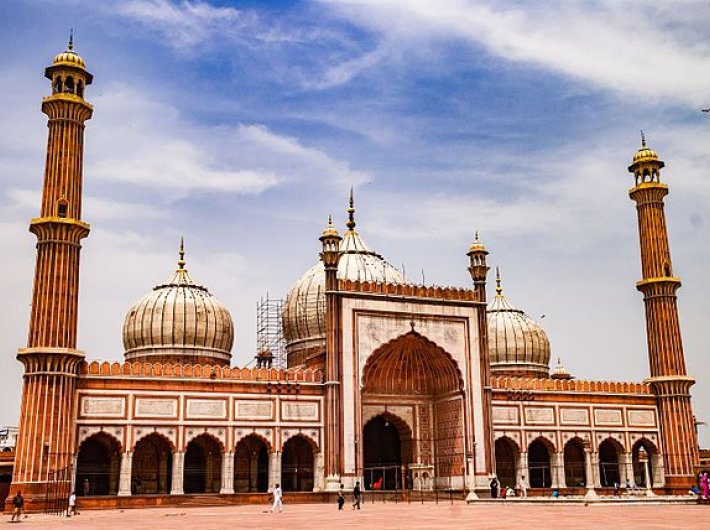Muslim leaders, scholars announce lockdown-sensitive guidelines for the community
With Ramzaan expected to begin from April 24-25, when the Muslim community will observe dawn-to-dusk fast for the month, Muslim scholars and imams of masjids across India have come out with guidelines for the community in line with the government’s fight against Covid-19 pandemic.
The guidelines framed by the think tank, Indian Muslims for India First (IMIF), is a collective of more than 200 prominent Muslims from different walks of life including politics, corporate, business, economy, journalism, policy-making, art and culture and philanthropy.
“For example, the holy scripture lays down conditions when people should not go the mosque. If that was not the case Mecca and Medina would not have shut down,” said Aarif Malik, head, communications, IMIF.
The guidelines include:
1. A visit to mosque during Ramzaan is prohibited in view of the lockdown. All prayers, reading of the Quran, Hadees and other scriptures and Iftaar should be done at home.
2. All five farz prayers and the other prayers and reading of the Quran and other religious texts must be done at home.
3. Evening Taraweeh prayers need not be in a group or in the mosque and can be offered solo. Physical distancing must be followed at home to the maximum.
4. No shopping and other acts of outings, fun and entertainment in the evenings. The time should be spent with family members at home.
5. For any Ramzaan related shopping all lockdown guidelines of the government must be adhered to.
6. Use of pre-dawn loudspeakers for waking up other Muslims for Sehri (early morning pre-fasting supper) may be avoided.
7. No Khatam Quran (speed Taraweeh prayers in 3 days or 7 days) instead of the customary 29 or 30 days should be organised either at home or in the mosques.
8. Imam of the mosque can make Sehri or Iftaar announcements from the mosque.
9. No Iftaar parties or dinners to be organized.
10. Ensure that poor, needy (including non-Muslims) are taken care of with food, money or any other help.
11. Offer special prayers for world peace, prosperity and eradication of the corona pandemic during the entire month of Ramzaan.
12. Parents and guardians to keep an eye on the young wards to ensure that they do not do anything against the interest of the community or the country during this time of national crisis.
13. Young men are warned not to go around town on two-wheelers and cars in the evenings without a curfew pass.
14. Community members should ensure that the imams, other attendants, teachers, and some remaining students in local mosques and madrasas must be provided all possible support in terms of food, money, books, stationery etc, so that they do not face any problems.
“A collation and summary of the appeals that have come from practically every part of India clearly indicates Muslim religious leaders’ quick and practical solutions for checking the spread of this outbreak. The guidelines have been framed under the tenets of Quran,” said Malik.
Welcoming the move, MJ Khan, president, Indian Minorities Economic Development Agency, said, “This is a very welcome development and shows that the community leaders are taking meaningful steps to avoid coronavirus spread and are fully aligned with prime minister Narendra Modi’s call to extend the national lockdown till 3rd of May.”
SY Quraishi, former chief election commissioner and member of IMIF, said, “We got many complaints that people are congregating in mosques. There are people who do not otherwise pray but go to the mosque for prayers during Ramzaan. Especially during this time when there is a crisis, any congregation is not acceptable. We have appealed to the people not to come to the mosque. The community must observe self-discipline, keep their own lives safe and also the country. Even Mecca and Medina have been closed.”
Another member of IMIF, Syed Zafar Mehmood, who is also founder of Zakaat Foundation of India and is a former IRS official, said that the holy month of Ramzaan is celebrated with much dedication every year and people congregate. “For the first time due to the coronavirus pandemic not only the government but the entire world has imposed restrictions which are correct measures and life-saving. For that reason, the community should not do any congregational activities. Though it is a major decision for the community, it has to be done. All prayers have to be done individually and there should be no collective worship or prayer. We appeal to the masses to follow these guidelines.
“Prophet Mohammad also would recite the Taraweeh individually when required so there is also a precedent. So the prayer should be done individually.”

